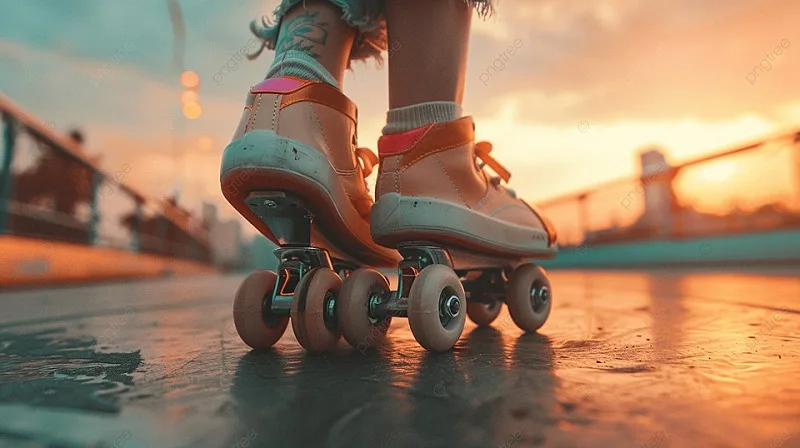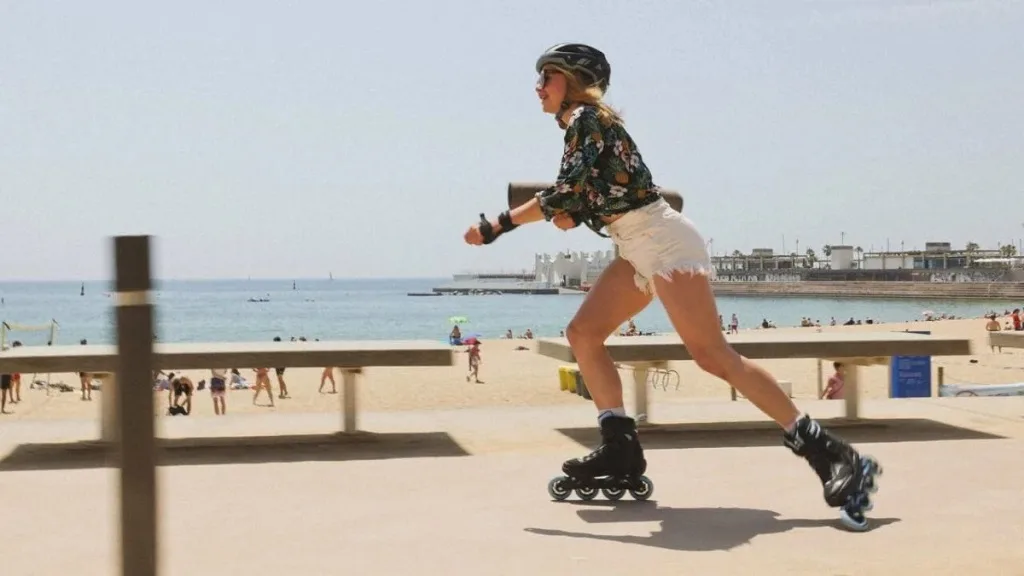
Roller skating is an exciting and active hobby that has been embraced by people of all ages. It involves moving on wheels attached to the feet, offering both physical exercise and an exhilarating sense of freedom. This hobby can be practiced indoors on roller rinks or outdoors on smooth surfaces like pavements, parks, or boardwalks. Roller skating allows enthusiasts to engage in a fun cardiovascular workout, while also improving balance, coordination, and muscle strength. The versatility of roller skating has led to its inclusion in sports, leisure activities, and even artistic expression.
Historically, roller skating became popular in the mid-19th century when the first recorded use of roller skates occurred in Europe. The modern four-wheeled design was patented in 1863 by James Leonard Plimpton, which allowed for easier movement and control. Throughout the 20th century, roller skating gained massive popularity, especially during the disco era of the 1970s and 1980s. With the rise of social media and the re-emergence of retro trends, roller skating is enjoying a resurgence in popularity today, appealing to both new skaters and seasoned veterans alike.
The Roller Skating Culture
Roller skating has cultivated a rich and vibrant culture over the decades. For many, it is more than just a hobby – it is a lifestyle. Roller skating culture is often associated with creativity, freedom, and social interaction. From roller discos to skate parks, the hobby attracts a diverse community of skaters who share a passion for the wheels under their feet. Roller rinks became popular hangout spots, particularly in the 1970s, where skaters performed synchronized routines to disco beats. The emergence of roller derby also helped define the sport side of roller skating culture.
Today, roller skating culture thrives on platforms like Instagram and TikTok, where skaters showcase their tricks, dance routines, and street skating skills. Influencers and roller skating communities are encouraging new skaters to take up the hobby, making it more accessible and inclusive than ever before. The fusion of roller skating with music, fashion, and art makes it a unique subculture that appeals to a wide range of individuals. Whether for sport, leisure, or self-expression, roller skating continues to leave its mark on popular culture.
What You Need to Know for Roller Skating as a Hobby
Before you dive into roller skating, there are a few things you should know. Firstly, it is essential to invest in a good pair of roller skates. There are different types of skates available, such as quad skates and inline skates, each offering a different experience. For beginners, quad skates are recommended due to their stability and ease of use.
Secondly, safety gear is a must. Protective gear such as helmets, knee pads, elbow pads, and wrist guards can help prevent injuries and give you the confidence to skate without fear of falling. Skating on smooth and safe surfaces is also advisable for new skaters to avoid accidents.
Lastly, learning basic skills such as stopping, turning, and balancing will make the skating experience more enjoyable. Taking lessons or practicing with experienced skaters can help you quickly improve and become more comfortable on your skates.

How Popular is Roller Skating?
Roller skating has seen various surges in popularity throughout history. As mentioned earlier, the hobby reached its peak during the disco era in the 1970s and early 1980s, with roller rinks becoming the center of social activity. In recent years, however, roller skating has seen a revival, thanks to social media platforms where influencers and skating enthusiasts share their skills and promote the sport.
According to industry reports, roller skating sales have spiked significantly in the past decade, and skate parks and roller rinks are becoming more crowded with new and returning skaters. This renewed interest has been fueled by its benefits as both a recreational activity and a fitness regimen. Celebrities and public figures have also played a role in boosting its visibility by showcasing their own roller-skating activities.
The rise of retro trends in fashion and lifestyle has helped bring back roller skating to the mainstream. Urban areas now have dedicated roller skating parks and communities, making it more accessible to people looking to pick up the hobby.
It is safe to say that roller skating has successfully re-established itself as a beloved hobby worldwide, attracting both younger generations and nostalgic older skaters.
Are There Tournaments for Roller Skating?
Yes, roller skating is not just a casual hobby; it also features a competitive aspect through various tournaments and sporting events. Roller derby, one of the most popular roller skating sports, is widely recognized and has leagues across many countries. This full-contact sport involves teams of skaters racing around a track and trying to outmaneuver their opponents to score points. Roller derby leagues often have organized tournaments where teams compete for titles and prizes, attracting large audiences and enthusiastic fans.
Aside from roller derby, artistic roller skating also hosts competitive tournaments. Similar to figure skating on ice, artistic roller skating includes disciplines such as dance, freestyle, and precision team skating. Skaters perform choreographed routines and are judged on their technical skills, creativity, and presentation. These competitions occur at national and international levels, offering opportunities for skaters to showcase their talent and passion for the sport.
Speed skating on roller skates is another competitive branch of the hobby, with races held on both indoor and outdoor tracks. This adrenaline-pumping version of roller skating tests speed, endurance, and agility as participants race against each other in timed events. Whether it’s for artistic expression, sport, or thrill, roller skating tournaments provide enthusiasts with a platform to engage with the hobby competitively.